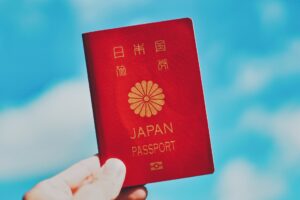What Is the Obligation to Enroll in Japan’s National Health Insurance?
A Guide for Foreign Residents on Procedures and Key Points
For foreign nationals living in Japan for the medium to long term, enrolling in National Health Insurance (NHI) is an essential step—not only for managing medical costs, but also for maintaining a stable legal residency.
However, many people are unsure about the details:
“Does it depend on the visa type?” “When and where should I apply?”
In some cases, failure to enroll has even led to unexpected problems.
In this article, we’ll clearly explain, from an administrative professional’s point of view, the obligation for foreign residents to enroll in Japan’s NHI, how to complete the procedure, and important points to keep in mind.
✅ What Is National Health Insurance?
Japan’s National Health Insurance (NHI) system is a public medical insurance program primarily for those who are not enrolled in employer-provided health insurance—such as self-employed individuals, retirees, students, or part-time workers.
By enrolling in NHI, 70% of medical expenses are covered, and the patient’s co-payment is generally 30%.
✅ Do Foreign Residents Have to Enroll?
◾ Who Must Enroll (Mandatory Cases)
Foreign nationals must enroll in NHI if they meet all of the following conditions:
- You have a valid residence status in Japan
- You intend to stay for more than 3 months
- You are not enrolled in social insurance (such as through a company)
- You are a student, dependent family member, or on a spouse visa, etc.
✅ Where and When Do You Enroll?
- Where: At your local municipal office (e.g. City Hall, Citizens' Affairs Division)
- When: Within 14 days of submitting your resident registration (juuminhyou)
💡 If you apply late, you may be billed retroactively for past months.
✅ Required Documents
- Residence card
- Passport
- My Number card or notification (if available)
- Proof of resident registration (juuminhyou)
Note: Requirements may vary slightly by municipality.
⚠️ Key Points and Common Mistakes
● Be Careful of Double Enrollment with Social Insurance
If you start working and enroll in employee-based health insurance, you must also withdraw from NHI.
Failing to do so can result in double payment of insurance premiums.
● Don’t Forget to Withdraw Before Leaving Japan
If you leave Japan permanently without withdrawing from NHI, you may continue to be charged monthly premiums even after departure.
● Even Spouse and Student Visa Holders Must Enroll
There is a common misconception that “I’m not working, so I don’t need insurance,” but anyone staying more than 3 months is generally required to join.
✅ Summary: Insurance Status Affects Immigration Matters Too
NHI is not just about covering your medical costs. It also plays a role in visa renewals and applications for permanent residency.
If you are not enrolled or fall behind on payments, this may be viewed negatively during immigration screening.
💬 Final Notes
Foreign residents who fail to manage their insurance status—whether due to late registration, unpaid premiums, or failure to withdraw—may face unexpected financial burdens or administrative issues.
Understanding the system and reviewing your insurance whenever you move, leave Japan, start work, or change residence status is critical to avoiding trouble.

